Let's have a chat
816-730-0173
Send an email
info@dataforagemarketing.com
Pro's and Con's of the Top CRM Platforms
Customer Relationship Management (CRM) software is a must-have for businesses of all sizes. For the uninitiated, CRM solutions allow you to track and manage customer interactions throughout their purchase journey—from initial contact to long after they’ve made a purchase. The right solution can help your business foster better relationships with customers while optimizing operational efficiency at the same time. But not all CRMs are created equal, which is why choosing one can feel like an overwhelming decision without reliable resources available that break down each system's pros and cons in detail. This blog post outlines some of the key features and benefits involved with popular cloud-based CRM solutions so you can make an informed decision about which platform will work best for your business needs.
Overview of the Top CRM Platforms:
With so many options out there, it can be hard to decide which CRM platform is best for you and your business needs. Many of the top contenders have their own unique set of features, so it is important to compare and contrast the various options in order to choose the most suitable one. Some popular examples of CRM platforms include Salesforce, HubSpot, Microsoft Dynamics 365 CRM, Zoho, Oracle NetSuite, SAP Customer Experience and more. Each platform has distinct advantages that provide users with different levels of control over customer data, automation tools and reporting functions. It is also essential to consider how easily these platforms can be integrated into existing systems as a way to expand their capabilities. With careful consideration of your organizational objectives, you can determine which CRM solution will work best for you.
Salesforce:
Salesforce is a popular cloud-based customer relationship management (CRM) platform for businesses to manage customer data, automate tasks, and analyze performance. It’s important to consider the pros and cons of the platform before investing in it for your business. On one hand, Salesforce offers an intuitive user interface and a comprehensive suite of marketing tools that can help its users maximize their sales efficiency. Additionally, businesses can build customized solutions on its robust API platform, enabling deeper integrations with other enterprise solutions. On the downside, there are subscription fees associated with using various Salesforce products which may be too costly for some businesses - especially small companies on tight budgets. Moreover, customizing Salesforce may require external programming expertise which some companies may not have access to or are willing to pay for. All in all, knowing the ins and outs of Salesforce is essential for any business hoping to take advantage of its many benefits.
Microsoft Dynamics:
Microsoft Dynamics is a comprehensive business solution that offers companies of all sizes the ability to streamline their processes, improve operational efficiency, and save considerable time and money. With Dynamics, businesses gain access to various tools designed for financial reporting, customer relationship management, analytics, inventory tracking, project management and more. These tools are powerful but come with some potential drawbacks. For example, the upfront investment for setting up and maintaining Dynamics can be high for smaller organizations or those with limited resources. Additionally, it can also require dedicated personnel with technical skills to operate it correctly. Despite these cons, Microsoft Dynamics remains one of the top options in terms of customizing critical business operations while ensuring data accuracy and security.
Data Forage:
Data Forage is a CRM platform designed to increase sales efficiency, primarily for small and medium-sized businesses. It can be a helpful tool for teams that need assistance tracking leads, organizing deals, and streamlining communication with customers. The main benefits to users are it's cost-efficiency, customizability and customer support. Despite the values, there are a few drawbacks worth noting. For one, some users may find the interface difficult to navigate at first, but since it's so customizable you can build the platform how you want it. Though customizability is great for some, this can be daunting to new marketing teams that aren't experienced with sales automations and other basic platforms. Luckily for users, the support team is always there to help with the customizations and are essentially an extension of the users marketing team.
HubSpot:
HubSpot is a powerful marketing and sales tool, touted as one of the top CRM (Customer Relationship Management) software solutions for small businesses. Its modern and intuitive user interface makes it an attractive choice for companies that want to track leads and communicate with customers in more effective ways. But with its suite of features comes a well-known downside: HubSpot's pricing structure can be prohibitively expensive for some business owners. It can also be overwhelming to learn all the different components of HubSpot, which requires taking time to understand each feature before putting it into action. Despite these cons, many businesses have found that their investment in HubSpot has been worth it in terms of improved customer relations, increased lead generation, and overall increased efficiency.
Zoho CRM:
Zoho CRM is a great choice for small businesses looking to streamline their customer relations management. It allows users to centralize customer information, simplify processes, and better control data flow in relation to customer relationships. It has powerful features such as real-time notifications, streamlined workflow automation tools, custom reporting, and mobile access that all help with more efficient delegation and organization of tasks. Though there are many advantages to using Zoho CRM, it can be complicated to use at first, and there may be significant setup costs involved if you want full access to all of its functions. In addition the customer service it provides can be lacking, so businesses should make sure they understand how to set up the system before signing up for it.
We can see from this overview of the top CRM platforms that each one has unique advantages and drawbacks. Ultimately, your choice will be based on the specifics of your business's needs. Depending on what factors matter most to you—cost, ease of use, or flexibility—any of these solutions could be a great fit. It's important to consider all the potential features for each platform to make sure you pick the one that is best for you now and down the road. After deciding what is most important for your business, it should become obvious which platform will suit you better than others. With the right knowledge and resources, selecting the best CRM tool doesn’t have to be a daunting task. Armed with this information about key features and pros/cons of each CRM system, you are closer than ever before making an educated decision for your business’s future!
Email us for a free walkthrough of the Data Forage platform!








